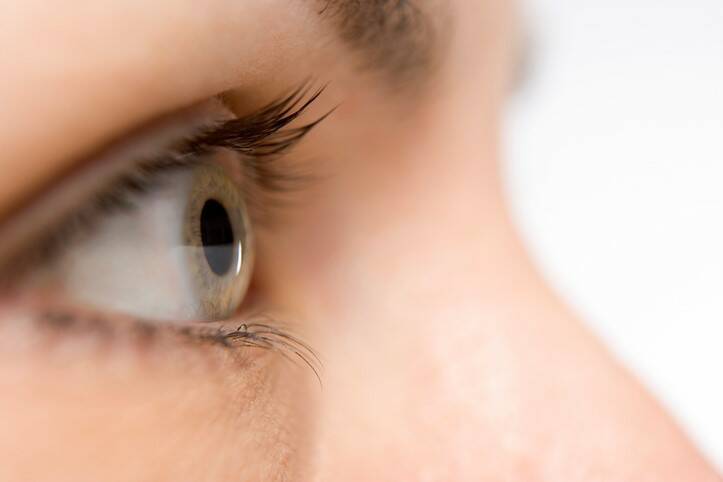Flashes before the eyes: what can flashes and lights before the eyes mean?

Even without an apparent disease cause, there is sometimes a condition where there is a blinking of the eyes, or other visual sensations. Phosphenes, as the sensations are known, also occur in the case of eye strain, after an accident, in case of fatigue, but also in case of low blood pressure. Sometimes they are a symptom of a disease.
On the other hand, it can also be a symptom of a more serious illness that may be related to the eyes or the brain.
What are flashes or visual perceptions?
What do flashes, flashes, "stars" in front of the eyes mean?
Learn about the most common causes.
The cause is fatigue, light and darkness
Fatigue is one of the causes when flashes before the eyes can appear, and this after a prolonged workload. Often a person has a feeling of various light flashes before the eyes after working for a long time in a dark or light environment, after working with a computer and so on.

In the case of prolonged work in too bright light, phosphenes, as the flashes in front of the eyes are technically called, can appear in the form of light and dark spots. And this is when a person goes into too dark an environment. Similarly, it works the other way round.
Flashes before the eyes = visual perception.
Pressure on the eye and injury
Causes include pressure exerted on the eyeball from the outside. This is when a sensation is created that is not real. It is also called pressure phosphene. Even an injury to the eye can be one of the causes. It depends on the extent of the damage, of course.
But it doesn't always have to mean a concussion or brain damage. There are other symptoms to look for in a concussion.
Disease as a reason for the trouble
Often it is various damage or inflammation of the optic nerves or some parts of the eye. It can manifest itself on the sensitive perception of light or darkness. As a result, there are flickers before the eyes, a person sees various dark and light spots and so on.
Often this is caused by a problem directly in that eye or both eyes. For example, in optic neuritis, which is an inflammation of the optic nerve. There is a disease process that affects the optic nerve and perception. Similarly, this is the case in retinal damage.
Sometimes the patient may temporarily lose vision. Colour vision is also affected, where the person is unable to perceive and distinguish certain colours. In many patients, visual perception, various spots in front of the eyes, are also present.
If the optic nerve is affected by sclerosis, this symptom can also occur. It appears, for example, in multiple sclerosis. Multiple sclerosis is a disease that has a number of symptoms. Among them is the deterioration of neurological functions.
When blood pressure deviates

Too low blood pressure can manifest itself similarly. Especially if it is a more severe form, when both dizziness and possible fainting occur. It can be in an extreme environment, for example, when standing for a long time in a cramped space. Hypotension can then manifest itself in a collapse.
There are known cases when a person suddenly changes position, especially from lying to standing or even from sitting. In this case, the blood circulation does not have time to react to the pressure changes. There is a reduced blood supply to the brain, which can then manifest itself in fainting and dizziness.
There may also be cases of fogginess in the eyes or visual perception when blood pressure is high, especially at extremely high levels, which may exceed 200 mmHg systolic pressure.
Before an epileptic seizure
People who suffer from epilepsy may have such visual disturbances, for example, as part of an aura. The aura is a precursor to the epileptic seizure itself. Possibly the first part of the seizure, when various symptoms begin to appear and then progress to a seizure.
Many people have different auditory, olfactory, gustatory and visual sensations. They hear different whistles, sounds, feel tastes or smells. Some people may also see different flashes or spots, flashes in front of their eyes. In epilepsy, there are also disturbances of consciousness.
Occurrence also in migraine

Phosphenes also occur in migraine, which is a disease manifested mainly by headache attacks. Most often it is a unilateral and throbbing pain of relatively high intensity. Even in migraine there is an aura.
It appears before the onset of the migraine and can last for a long time. It includes various visual sensations, such as flashes, sparks, various spots, sometimes visual field problems, but also various sensory or motor sensations.
If a person has flashes in front of the eyes without an obvious cause and in periods of calm, when the optic nerves are not strained, it is better to see an ophthalmologist. He will carry out a specialist examination.
Diseases with symptom "A twinkle before the eyes"
Interesting resources










